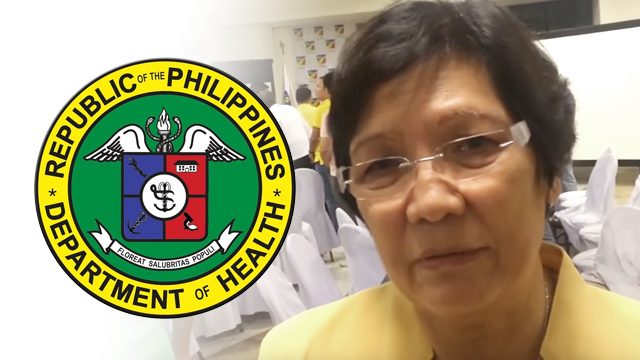SUMMARY
This is AI generated summarization, which may have errors. For context, always refer to the full article.

MANILA, Philippines – The Department of Health (DOH) is preparing a “first-of-its-kind” case against Sorsogon City Mayor Sally Lee for alleged “gross violation” of the Reproductive Health (RH) law.
The case stems from Lee’s issuance of an executive order in February 2015 that declared the city as “pro-life.”
“The DOH is developing a case – a first-of-its-kind case – to make the mayor accountable for gross violation of RH law,” said Director Junice Melgar of the DOH Family Health Office during the launch of the second consolidated report on the implementation of the RH law.
Melgar said DOH lawyers have been consulted about the case.
“Actually, the legal office of DOH has been consulted and the legal office actually consulted with [the Solicitor General] about a particular case against Sorsogon. So we’re readying that. I don’t know how long the bureaucracy in the Department of Health will take, but I think even the [civil society organizations] are pushing on with a case…of violation against the RH law,” she said on Wednesday, June 22.
While the executive order sounds “simple,” Melgar said the de facto effect is a ban since planning commodities were withdrawn from the city, and services “were stopped by the mayor arbitrarily.”
The health department sent a delegation to Sorsogon City just as the local government was hearing an ordinance that was supposed to “codify” Lee’s executive order.
“Because of the intervention of this group from the national agency DOH, [Commission on Population] – [the] regional directors of both PopCom and DOH were there – I think they were prevailed upon to stop the making of the ordinance, so it never progressed,” she explained.
The executive order, however, still stands.
Melgar noted that the situation in Sorsogon City is “reminiscent”of the DOH experience in the City of Manila – one of the areas where she served as director and co-founder of Likhaan Center for Women’s Health.
“There were efforts to get people from the ground – women and their families – to testify. But like our Manila experience, the women were really scared. We know of people who were deprived of the services, but none of them were eager to come out, expose themselves, and be involved in a case,” she lamented.
Since the executive order was issued, Melgar said poor women had to buy their family planning commodities because the city stopped providing for them.
For now, the regional offices of DOH and PopCom, together with non-governmental organizations, are “filling the gap” in Sorsogon City.
“The [Commission on Human Rights] went there…this year, and they sort of affirmed that there’s a problem. But Mayor Sally Lee got reelected again. We were hoping she would not,” Melgar said.
In March, the CHR launched a national inquiry into RH law violations in the country.
PopCom executive director Juan Antonio Perez III, meanwhile, urged the Department of the Interior and Local Government to enforce its December 2015 memorandum circular, which stressed that local government units (LGUs) may enact enabling ordinances, issuances, and policies that support and institutionalize the implementation of the RH law.
“Specifically, the circular says LGUs should not issue, make any legislation that is contrary to the law,” Perez noted.
He said the delivery of RH services on the ground will not be sustainable without the support of LGUs.
“I think that’s where DOH, PopCom, [and] civil society should continue to be watchful, and to see how the legislative process continues under Sally Lee. We will be ready to take action when necessary,” he added.
The controversial RH law was enacted in 2012 but it was only declared constitutional by the Supreme Court in 2014. It was not fully implemented until November 2015. – Rappler.com
Add a comment
How does this make you feel?
There are no comments yet. Add your comment to start the conversation.